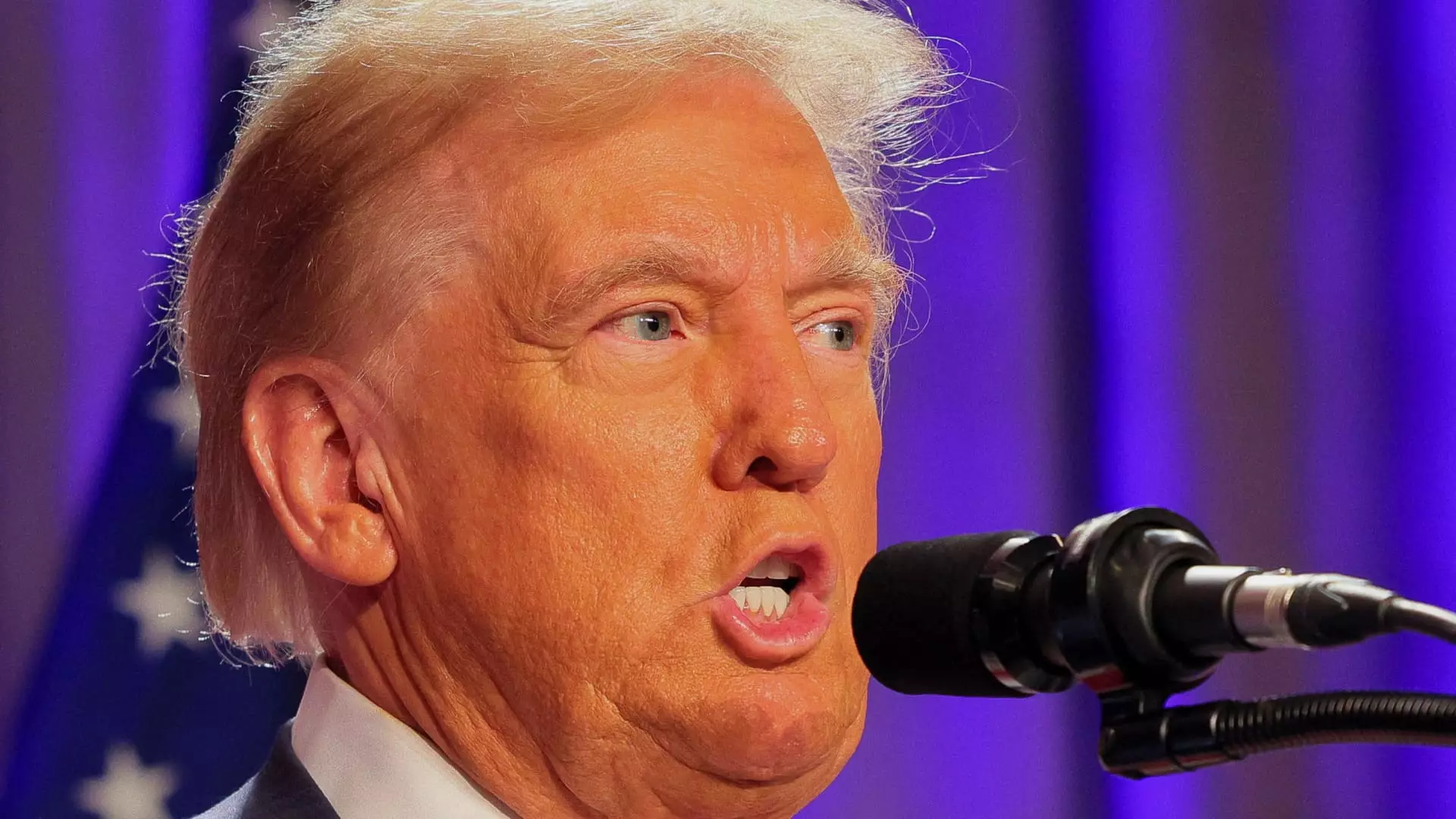In a recent interview with NBC’s “Meet the Press,” President-elect Donald Trump articulated a perspective on U.S. military support for Ukraine that has raised eyebrows and invoked debate regarding the future of international aid and defense strategies. Trump’s assertion that Ukraine may receive reduced military aid when he assumes office marks a significant shift in U.S. foreign policy. He criticized the current allocation of resources, pointing out that while the U.S. has committed a staggering $350 billion in military support since the onset of conflict, Europe has only contributed around $100 billion. This stark contrast raises questions not just about the distribution of international responsibility but also the solidarity of allied nations in the face of ongoing conflicts.
Trump’s emphasis on European nations contributing more reflects a long-standing critique of NATO’s financial commitments, which has been a focal point of his political strategy. “Why isn’t Europe in for the same as us?” he challenged, indicating that he believes it is unfair for the U.S. to bear such a disproportionate burden. This stance could potentially change the dynamics of defense agreements and support structures if he follows through once in office.
The Implications of Reduced Support
The implications of reducing military aid to Ukraine could be dire. It reflects a potential pivot away from a commitment that is seen as crucial in the ongoing geopolitical struggle against Russian aggression. Secretary of Defense Lloyd Austin announced a $988 million aid package to Ukraine just days before Trump’s interview, highlighting the U.S.’s commitment to supporting Ukraine in its conflict against Russia. If Trump’s administration were to cut back on this support, it raises valid concerns about the long-term sustainability of Ukraine’s defense capabilities.
Trump’s comments further highlight his view of international politics as a transactional arena where countries must demonstrate their willingness to share the financial burden of global security. This assessment could lead to fractures within NATO, particularly if member nations feel pressured to comply with financial requests over strategic partnerships developed over decades.
Additionally, Trump’s comments about Ukrainian President Volodymyr Zelenskyy being a “great salesman” echo a sentiment that has been noted throughout the conflict: the ability of leaders to negotiate and present their nations’ needs effectively can significantly influence foreign aid. Such statements may divert from addressing the actual humanitarian needs of Ukrainians suffering from the war and instead frame the issue through a business-like lens that may be alienating to allies.
This perspective on Zelenskyy can diminish the complex realities of war and governance, making aid feel less like a moral obligation and more like a business transaction. Such a viewpoint risks undermining solidarity among nations that share common democratic values and human rights.
Further complicating this diplomatic landscape, Trump’s comments concerning his interactions with Russian President Vladimir Putin indicate a potential reevaluation of U.S. engagement with global powers. Trump suggested that his close ties with Putin could allow him to facilitate an end to the conflict swiftly. This is a stark contrast to the historical stance of most American leaders who have approached Putin with caution due to Russia’s actions on the global stage, particularly in Ukraine and Syria.
Moreover, Trump’s recent comments regarding his dialogue with Chinese President Xi Jinping raise additional questions about U.S. foreign policy. While he refrained from committing to defend Taiwan, the ambiguity surrounding America’s military posture could embolden China in its aspirations toward Taiwan. Trump’s neglect to address firm support for Taiwan prompts reflections on the potential weaknesses in alliances that could shape the security framework of the Asia-Pacific region.
Trump’s emerging foreign policy, as articulated in his recent interview, could mark a departure from traditional U.S. commitments to its allies. By potentially reducing military aid to Ukraine and questioning the equitable financial contributions from NATO allies, Trump sets a tone where American foreign policy may hinge on financial reciprocity rather than shared values. The ramifications of such a policy shift could lead to increased tensions over shared responsibilities in international conflicts and create uncertainty regarding America’s commitment to global stability.
As Trump steps into the political landscape again, how his administration will navigate these challenges remains to be seen. The war dynamics in Ukraine, China’s ambitions, and Russia’s reassertion are fraught with complexities that require the nuanced approach that has historically characterized U.S. foreign policy. Whether Trump can strike the right balance between transactional diplomacy and maintaining alliances is a challenge that the international community will be closely watching.

